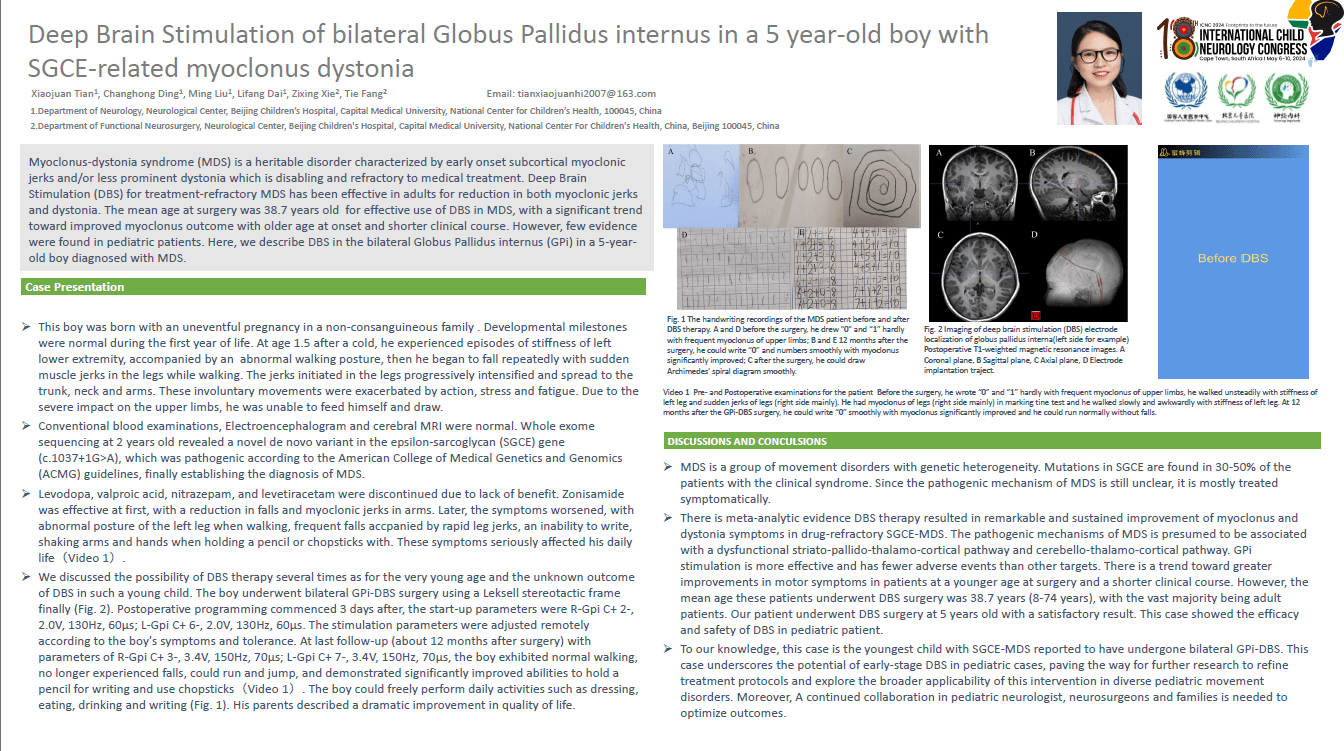Deep Brain Stimulation Of Bilateral Globus Pallidus Internus In A 5 Year-old Boy With SGCE-related Myoclonus Dystonia
Myoclonus-dystonia syndrome (MDS) is a heritable disorder characterized by early onset subcortical myoclonic jerks and/or less prominent dystonia which is disabling and frequently refractory to medical treatment. Deep Brain Stimulation (DBS) for treatment-refractory MDS has been effective in adults. In this article, we present a 12-month outcome of DBS in the bilateral Globus Pallidus internus (GPi) in a 5-year-old boy diagnosed with MDS caused by a novel splicing variant c.1037+1G>A of SGCE gene, Our patient had an early onset age and presented with episodic lower limb dystonia as the first manifestation, followed by gradually aggravated myoclonus, mainly in the upper extremities, with involvement of the lower extremities, leading to frequent falls and greatly impairment of fine hand movements, which seriously affected daily life, and was poorly treated with drugs such as zonisamide. We discussed the possibility of DBS therapy several times as for the very young age and the unknown outcome of DBS in such a young child. Finally after the surgery at 5 years old, the boy's symptoms improved significantly without complications. He could go to school for education and play just like other healthy peers. To our knowledge, This case is the youngest child with SGCE-MDS reported to have undergone bilateral GPi-DBS. As DBS surgery at an early stage may predict a better outcome, it is suggested that for drug-refractory SGCE-MDS with childhood onset, DBS therapy may be feasible, and may greatly improve the symptoms of the child as early as possible and improve the quality of life.
Xiaojuan Tian
Beijing Children's Hospital, Capital Medical University, National Center For Children's Health
China
Changhong Ding
Beijing Children's Hospital, Capital Medical University, National Center For Children's Health
China

Xiaojuan Tian
Beijing Children's Hospital, Capital Medical University, National Center For Children's Health
China